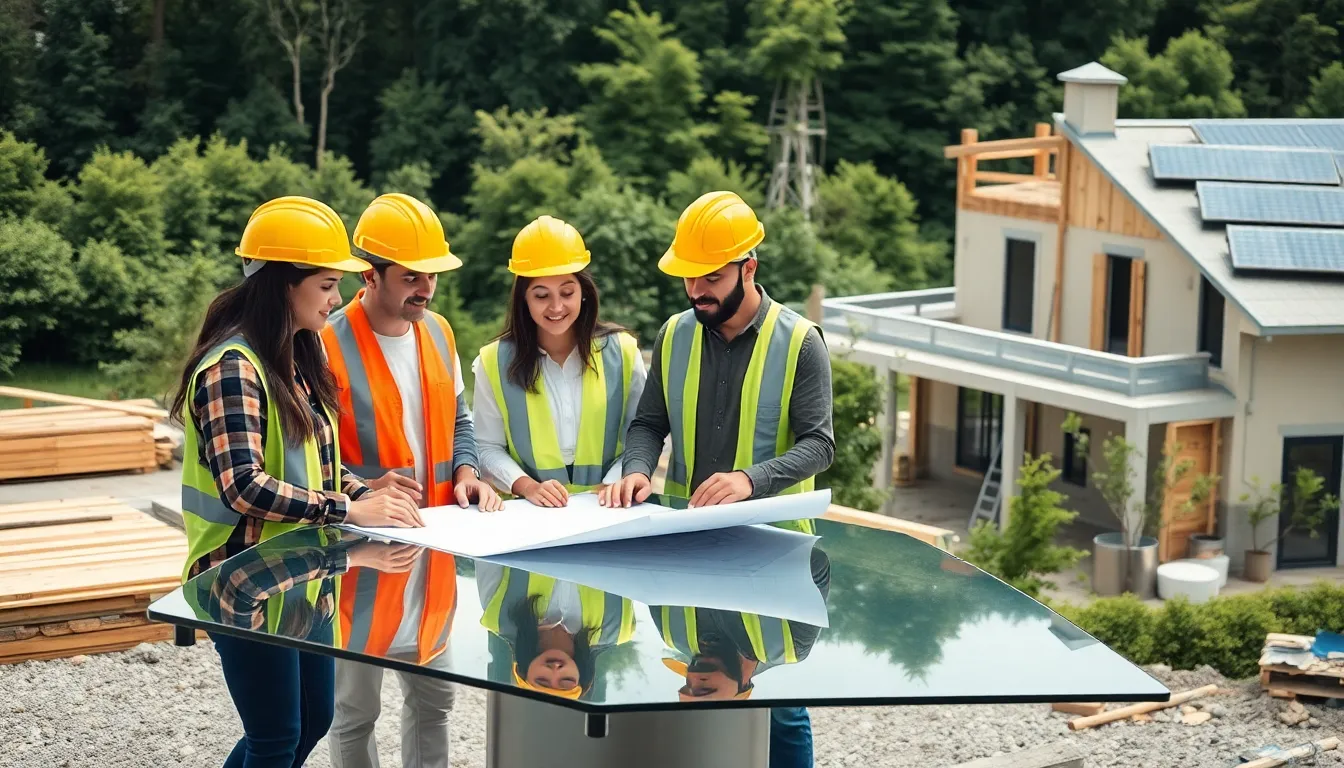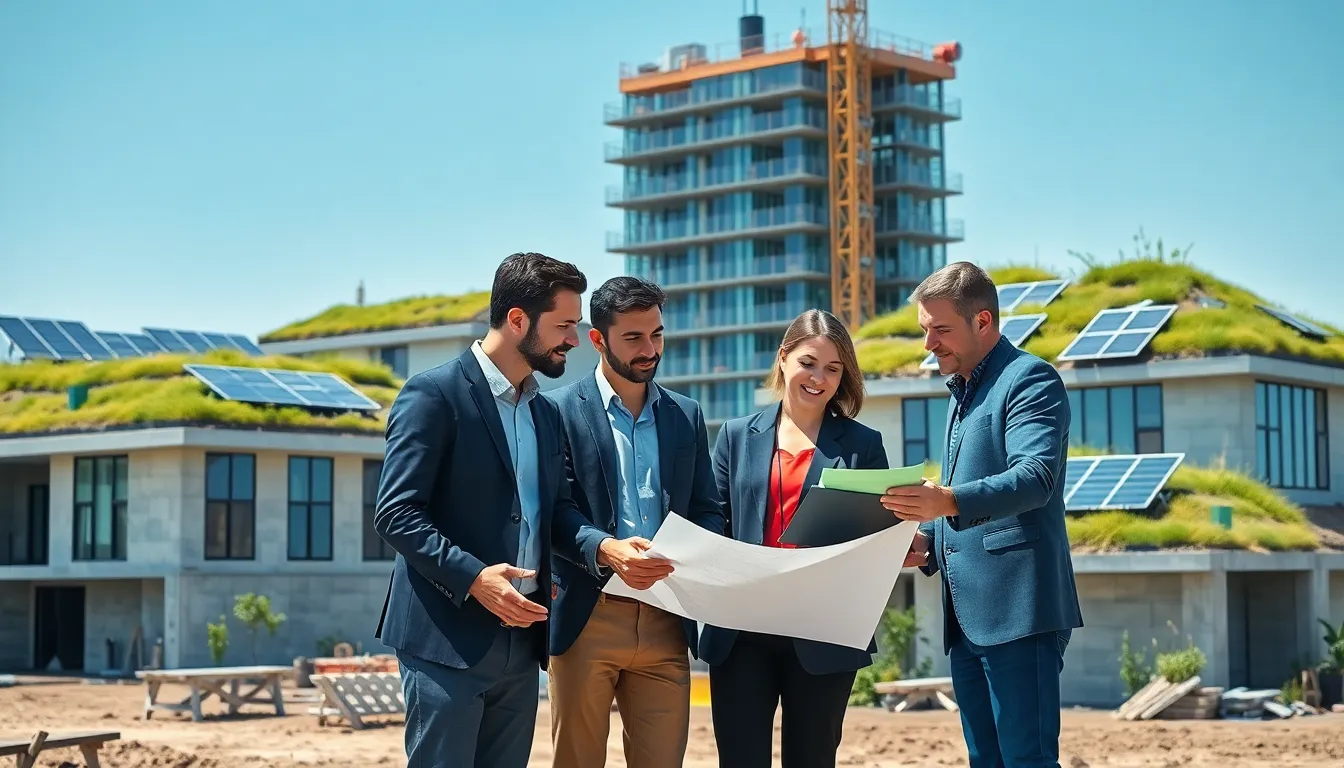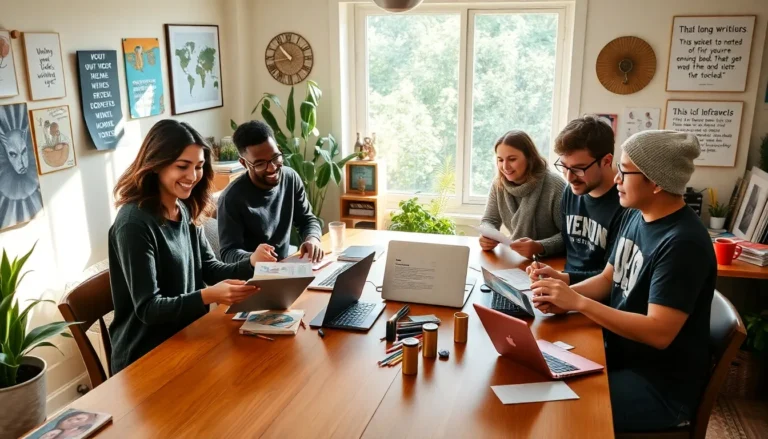Table of Contents
ToggleImagine a world where buildings breathe as easily as we do. With sustainable construction technology, this vision is becoming a reality faster than you can say ‘eco-friendly’. While we enjoy the traditional popcorn ceilings and fairy-tale castles in our dreams, it’s high time we step into the future of construction, one that doesn’t cost the earth. Join the journey into sustainable construction technology, where innovative thinking meets mother nature, often leading to some pretty remarkable results.
Understanding Sustainable Construction

Sustainable construction refers to the practice of designing and building structures that minimize environmental impact while maximizing resource efficiency. This includes everything from the initial planning stages to materials used and energy consumed. The cornerstone of this approach is a commitment to reducing waste and promoting the well-being of both occupants and the planet. In essence, sustainable construction integrates environmental considerations with economic viability, creating a win-win scenario for builders and the community alike.
Importance of Sustainable Practices in Construction
The construction industry is often a considerable contributor to environmental degradation. By embracing sustainable practices, builders can mitigate this impact and lead the way in promoting healthier living spaces. Sustainable construction helps in reducing greenhouse gas emissions, conserving resources, and improving indoor air quality. In our increasingly climate-sensitive world, it’s crucial for not only the ecological benefits but also the economic savings that sustainable practices offer. Studies show that sustainable buildings can save up to 30% on water usage and 50% on energy costs. Sounds like a good deal, right?
Innovative Technologies in Sustainable Construction
Sustainable construction is at the heart of a technological revolution, where cutting-edge innovations meet green principles. Let’s investigate into a few groundbreaking developments shaping the industry.
Materials Used in Sustainable Construction
Innovative materials like recycled concrete or bamboo are gaining popularity due to their low environmental impact. These materials not only reduce waste but lend durability to structures. For instance, research shows that using recycled steel can save more than 70% energy compared to new steel production.
Energy-Efficient Construction Techniques
Techniques such as passive solar design or living roofs are proving vital in reducing energy consumption. Passive solar design utilizes the sun’s rays for heating, minimizing dependence on artificial heating methods. Living roofs are gardens installed atop buildings that not only provide insulation but also improve air quality.
Smart Building Technologies
The rise of smart technology is revolutionizing how buildings function. Systems that automatically adjust temperature, lighting, and even occupancy levels make it easier to optimize energy efficiency. This not only enhances comfort but reduces operational costs significantly. With IoT devices, buildings can learn from their environment and become more efficient over time.
Challenges in Implementing Sustainable Construction Technology
Even with its clear benefits, sustainable construction technology isn’t without hurdles. One major challenge is the higher initial costs associated with sustainable materials and technologies, which can deter investment. Many builders and developers still view traditional construction methods as less risky and more cost-effective in the short term.
Also, insufficient knowledge and expertise around sustainable construction can lead to resistance within the industry. If professionals aren’t trained in the latest innovations, the push for sustainability falls short. Many in the industry still have conflicting opinions on the benefits of sustainable practices, making widespread adoption a complex challenge.
Future Trends in Sustainable Construction Technology
Looking ahead, several exciting trends are poised to shape the future of sustainable construction technology. The integration of Artificial Intelligence (AI) in design and construction processes is expected to enhance efficiency and accuracy. AI can analyze vast amounts of data to improve resource management and predict energy usage.
Also, the move towards circular economy practices in construction is gaining momentum. This approach focuses on reusing and recycling materials, so minimizing waste and overall demand for new resources. Developing more robust regulations around sustainability can also encourage more companies to adopt eco-friendly practices, paving the way for a greener construction industry.





